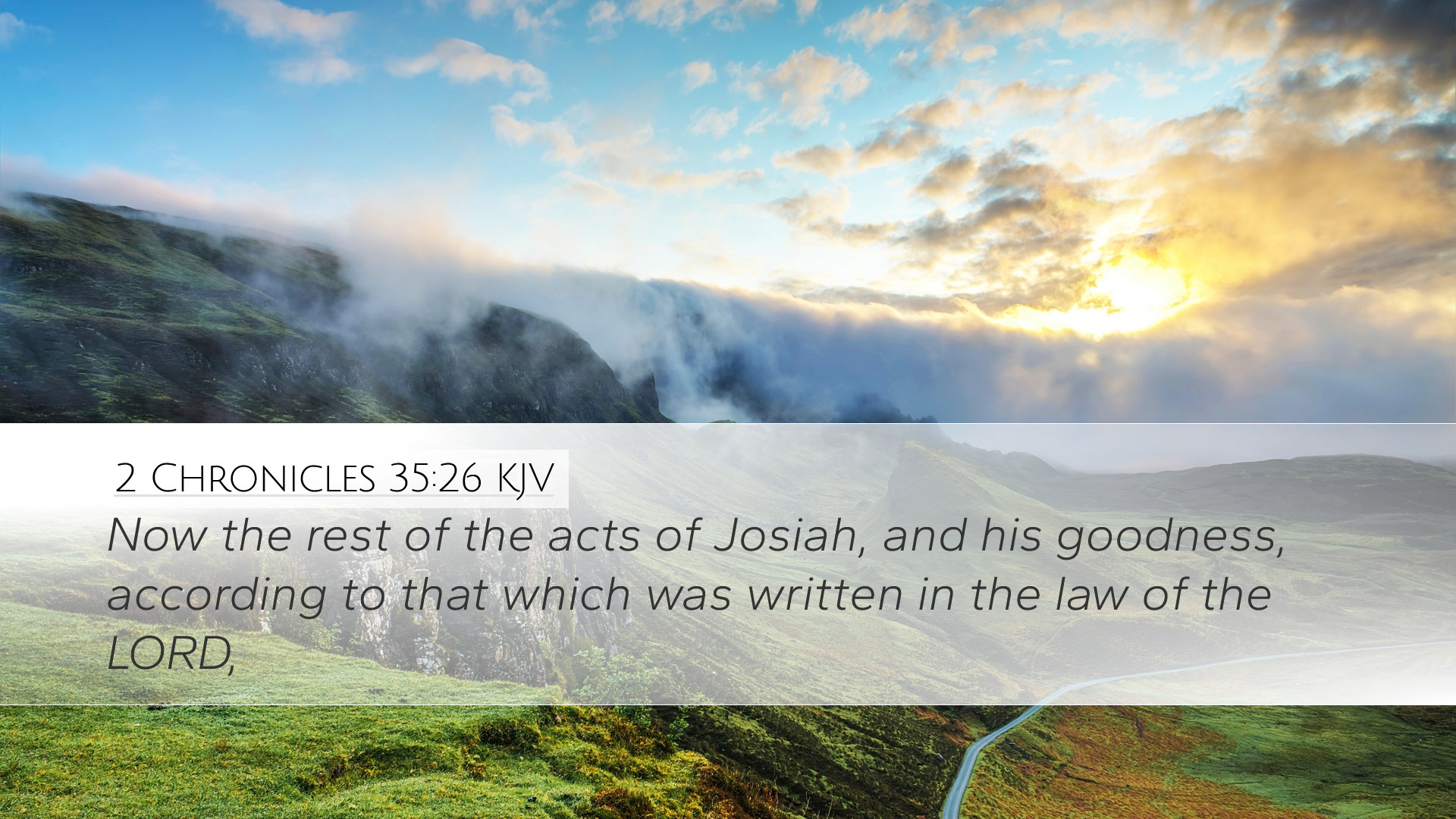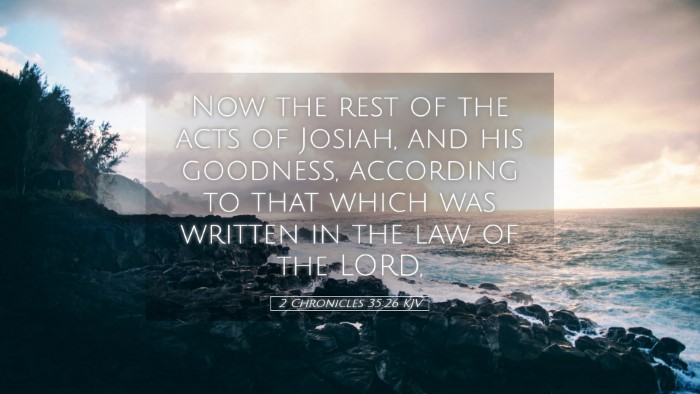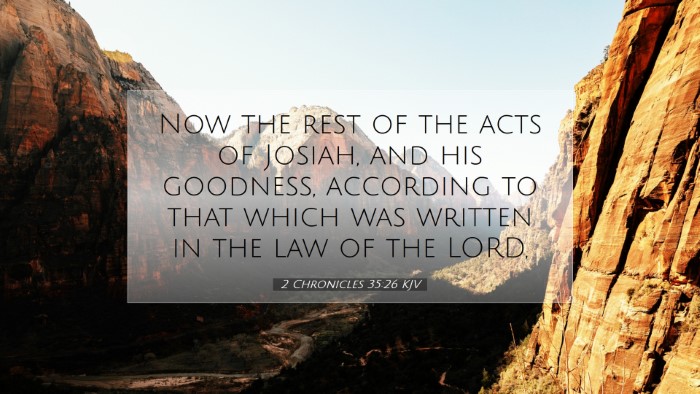Commentary on 2 Chronicles 35:26
In 2 Chronicles 35:26, we find a significant verse that encapsulates the life and legacy of King Josiah, providing invaluable insights for pastors, students, theologians, and Bible scholars. This verse serves as a conclusion to the narrative surrounding Josiah’s religious reforms and the observance of the Passover. Here, we explore the depth of this passage by drawing from established public domain commentaries.
Text of the Verse
2 Chronicles 35:26: "Now the rest of the acts of Josiah, and his goodness, according to that which was written in the law of the Lord,
The Life and Reign of Josiah
Josiah, one of the last kings of Judah, is remembered for his fervent reforms and the restoration of true worship in Israel. Matthew Henry notes that Josiah’s reign, particularly his dedication to the Lord's commandments, serves as an exemplary model of righteousness in a time when Israel was deeply entrenched in idolatry.
Josiah's Reforms
- Restoration of the Temple: Josiah initiated the repair of the temple, a symbol of national worship and identity.
- Re-instituting the Passover: He re-established the Passover celebration, emphasizing its importance in remembering God's deliverance.
- Removal of Idols: Josiah was instrumental in eliminating pagan worship practices across Judah.
Goodness According to the Law
The reference to "his goodness" aligned with the law signifies Josiah's adherence to the commandments of God, a recurring theme in biblical texts analyzed by Albert Barnes. His actions were not merely for political stability but a heartfelt response to divine truth. This adherence emphasizes the biblical principle that true goodness is measured against the standards set forth by scripture.
Theological Implications
This verse raises important theological points for reflection:
- Divine Standards of Goodness: The notion that goodness is defined through adherence to God's law challenges current understandings of morality without divine basis.
- Legacy of Righteousness: Josiah’s life offers a paradigm for leaders today; their legacy is shaped by their faithfulness to God's precepts.
Historical Context
Adam Clarke elaborates on the historical context, emphasizing the socio-political environment of Judah during Josiah's reign. The homage paid to Josiah through the chronicler’s records is a testament to the impact of godly leadership amidst adversity. The mention of Josiah's goodness as recorded "in the law of the Lord" ties back to Deuteronomy, where kings are admonished to study the law and live accordingly (Deut. 17:18-20).
Connection to the Law
The connection to God's law is multi-faceted:
- Preservation of Worship: Josiah's efforts ensured the worship of Yahweh was preserved against corrupt practices.
- Role of the Law: The law serves both as a guide and a standard for civil and ceremonial conduct among God's people.
Conclusion
2 Chronicles 35:26 encapsulates the righteous legacy of King Josiah, a king whose life embodied the law of the Lord. The depth of his reforms and dedication to divine statutes not only altered the course of Israel's history but serves as an enduring example to contemporary believers. The insights gained from Matthew Henry, Albert Barnes, and Adam Clarke underscore the necessity of aligning one’s life with the teachings of scripture, offering a comprehensive understanding of what it means to live under God’s covenant.
As scholars and practitioners delve into this text, it becomes evident that the relevance of Josiah’s example is timeless, challenging each generation to respond to God with obedience and heartfelt worship.


